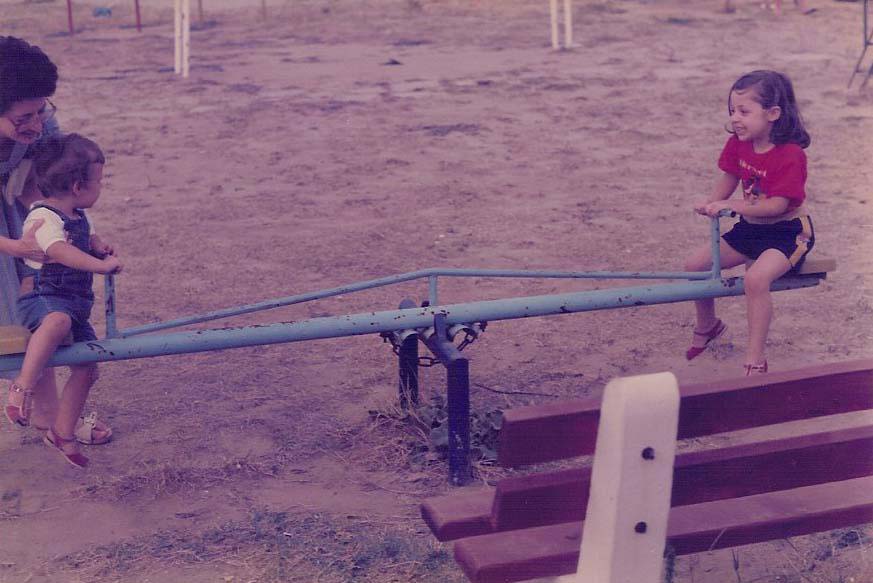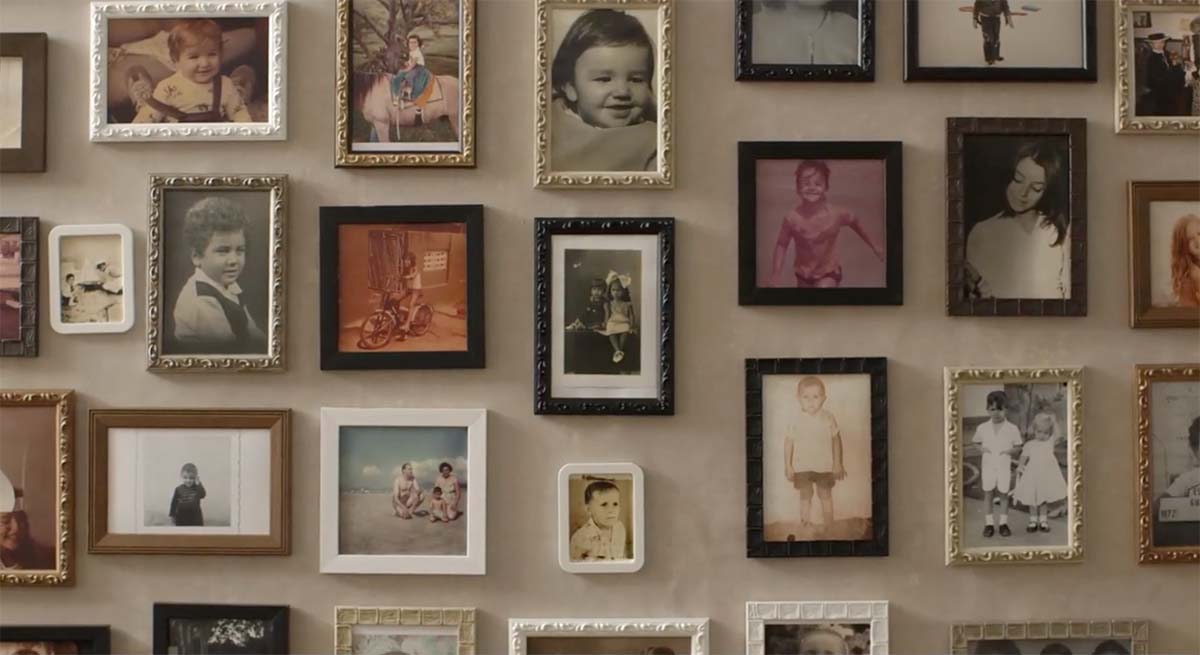Photo Credit: Drops of Joy / Maria Farinha Films
Let me start off this week by welcoming those who are new to this community! Hallo to Jessica, Almaz, Alessio, Cara, Dina, Rania and Yoshie. I know some of you in person, but if you want to get a sense of what keeps me going, look at last week’s newsletter to get started. And now, let’s get going.
What are your happiest memories of when you were a child?
When I think of my childhood’s happy memories, my mind travels mostly to our summers in my parents’ camper van, somewhere in Greece or Turkey. The seaside is recurrent in these memories. I can feel my hands going all wrinkly after spending hours in the water pretending to be a mermaid or the sand sticking to my knees as I help my father build an elaborate volcano. I can smell that 1980s coconut-flavoured sunscreen that my mum used. There are some rusty and abandoned playgrounds, others made out of high wooden structures that we would only dream of in Naples, there are treehouses we hoped to build one day in the woods. There are also exciting afternoons in the communal space outside the apartment we grew up in, playing hide and seek in between parked cars, kicking a ball around without aiming at people’s windows, imagining all the magical and scary creatures that lived in an abandoned house next door. My brother is always present in these memories, us playing in parallel or together, within each other’s reach. There is an unmatched lightness to these memories. They hold a power that allows me to transport myself back to that moment again, as if a part of me had remained there, in those moments, for me to go back to and find inspiration.
I’m talking about inspiration because play practitioners agree that to be creative and joyful as adults and support children’s play, we need to connect with what we loved as children. I first heard this idea from early childhood educator Kisha Reid of the Discovery Early Learning Center, a play-based program located in Poolesville, Maryland. To get adults to understand why their children want to play and what they like to play with, “I would bring adults back to their childhood,” Reid said at The Play First Summit last July.
So, let me go back to my initial question: What are your happiest memories as a child?
If you’re having a hard time with this question, think of one of your childhood photos that shows that spirit, that sense of fun or adventure. Here is mine, in one of those mythical summers in the 1980s, with sand under my feet, in some rusty old playground, excited about what was to come next.

As you know from my previous writing, it’s always the right time to think about play.
Play is a universal activity that kids just do. But, as I’ve written before, children are playing less and less freely. To support children’s play, we adults need to recognise three fundamental characteristics of play:
- Play doesn’t have an aim
- Play needs to be initiated by children, not imposed
- Play is essential to learning about the world and interacting with others
But what’s prompting me to write about play this week is Drops of Joy, a beautiful – and playful – Brazilian documentary I’ve just watched. The film is an ode to the importance of play for children’s development and adults’ happiness. (You can watch it for free next week, see details below.)
“Playing is a spontaneous language. In this sense, I would say that it is the language of the soul,” says educator Maria Amélia Pereira in the film. “A child doesn’t live to play. Playing is living.”
The film mixed beautiful archive images of children playing in the past with footage of children playing across Brazil, building kites or making cars out of cans. It then examines the relationship between the country and adult forms of play: think of Carnival, samba, or other traditional and popular dances, such as the Ciranda in the North East. The mix of colours and music is so energising that it’s hard not to want to tap on a drum or dance along.
From the outside, it’s clear to me that Brazilians are playful people. But the documentary’s analysis shows how much urbanisation, growth and modernity are impacting playfulness. Educator Ana Lucia Villela talks about a general belief that playing with traditional toys, in nature, is a way to go back in time and slow down progress. “A lot of people think that rescuing playing is bringing back a time of ignorance,” she says. But she then mentions the screen-free, nature-immersed education that all the top executives of Silicon Valley, including Bill and Melinda Gates, have preferred for their children as proof of how nature and free play ensure more creativity.
One other element in the film really touched me. It’s when Renata Meirelles, an educator, documentary-maker and play researcher, says: “I was scared of growing up.” She loved playing so much that she thought she would lose all of it by becoming an adult. She clearly did not and plays even these days, but her honesty made me reflect on another question the film brings up: Would the child we once were be proud of the adult we became?
The film suggests that kids and popular culture can inspire us if we’ve lost our playful ways. Sometimes Lorenzo helps me a lot. When we go to the beach, I can spend hours looking for shells, which reminds me of my past explorations. As you know, I’m also trying to learn how to skip the rope (I’m improving, by the way), and I’ve scheduled half an hour of fun every day (which I’ve ignored today because I’m late with this newsletter, but hey, at least I know what I should be doing instead).
So, let me end with some new questions: When did you last play? And what did you do?
If you need some play inspiration, there is an ongoing campaign called #LoveToPlay2021 led by the city of Leeds in the UK. Here they have some resources to inspire us, adults, to have some fun with our phones’ help. And if you do have fun, please share below! I plan on doing some origami, going to a solo exploration of the beach, and skipping some more.
On 20 April, you’ll be able to watch the film Drops of Joy for free as part of the Rights Studio Festival. You can also join me as I will lead a Q&A with the film’s director, Cacau Rhoden. You can register here. And if you have any questions that you’d like me to ask Cacau, the film’s director, you can share them below ahead of the event, and I’ll make sure to let you know what he says in one of my upcoming newsletters.
What I’ve been reading
“Newly vaccinated mothers are right to feel as if they have a new superpower,” writes Heather Murphy in this very informative piece in the New York Times. Different studies have shown that mothers who received a Covid-19 vaccination can pass the newly developed antibodies through milk. It is still unclear how much those antibodies can protect infants and how long their effect lasts (most likely, only as long as the infant keeps breastfeeding). Despite all this evidence, paediatricians worldwide still give mixed information to newly vaccinated mothers about dumping their milk. This is because none of the vaccine trials included pregnant or breastfeeding women. If you or people around you can get the vaccine soon and are breastfeeding, this is a great piece to read and share.
What I’ve been listening to
The documentary has given me saudade of Brazil, a country I know very little in real life but experienced vicariously through my Portuguese classes and my friendship with Claudia. So I’m writing this newsletter with Fernanda Abreu’s Rio 40 Graus as a soundtrack – a beautiful tribute to the beautiful and challenging things of Rio de Janeiro, “marvel city, purgatory of beauty and chaos”.
What I’ve been watching
I’ve been watching Drops of Joy, a unique Brazilian documentary about the importance of play, the one I talk about above. On 20 April, you’ll be able to watch the film for free as part of the Rights Studio Festival. You can also join me as I lead a Q&A with the film’s director, Cacau Rhoden. You can register here.
Who’s been inspiring me
Jessica Zucker, a psychologist specialising in reproductive health, has just published a book called I Had a Miscarriage in which she talks about her own personal experience and how she set up a campaign under the hashtag #IHadaMiscarriage. The book is on my reading list, so more on that soon. But in the meantime, Zucker also curated an incredible reading list with several other books on miscarriage, here. Thanks to Liz, a member of this community, for sharing this with me.
My Greek word of the week
Magic goes all the way back to the 5th century b.C., to the Greek word μάγος, which itself comes from the Old Persian maguš. The maguš most likely served several functions, from presiding religious rites to being a functionary at the Persian court. Since the Persian Empire was in conflict with several Greek cities, to the Greeks, maguš became a suspicious foreigner, a charlatan, and magic assumed negative connotations. There is a whole book dedicated to the origin of the word magic. It’s fascinating to consider that one people’s religion can turn into another people’s magic, something to look at with fear and suspicion.
What members are saying
Last week I asked you, members, to tell me why you are here on this platform and what you expect from this space. Several of you left very thoughtful answers, but one, in particular, stands out. “I do wonder if I’m the ideal audience, really. I’m now in my late 40’s, not interested in having children of my own and disabled and not working due to feeling incapable of working because of my disability,” says Jennifer. “While my focus isn’t on children, or children’s needs, I understand that children grow up to be adults, and that their experiences shape them. I want to know how to be a better person to others – how to help others become better people, too. So if I can learn about how things work when we’re kids, I figure it can’t be too far off from how things work as we become older kids.” The message is much richer and eye-opening. So, whatever you do this week, please make sure to look at Jennifer’s full answer, here. And remember that it’s not too late to leave your thoughts now and take more steps to build this community together.
What I would love your help with
Please fill in this Doodle form to help me set a time for the next Zoom meeting. As you know, my monthly Zoom meetings are for founding members. But this month, I’d like to open it up to all paying members to give everyone a chance to get a sense of what we talk about and what you gain from attending. I know that Bonnie, who’s so far come every month, enjoys a preview of the stories I’m working on. Christine, who’s also a regular, has said that she likes how international they are. I will share the date and details next week.
With love and care,
Irene
📣 Claudia Jardim, a member of this community, edited and improved this newsletter with lots of love, logging in from Bangkok, Thailand. Thanks, Claudia! (If there are mistakes, they are my fault, not hers!)

